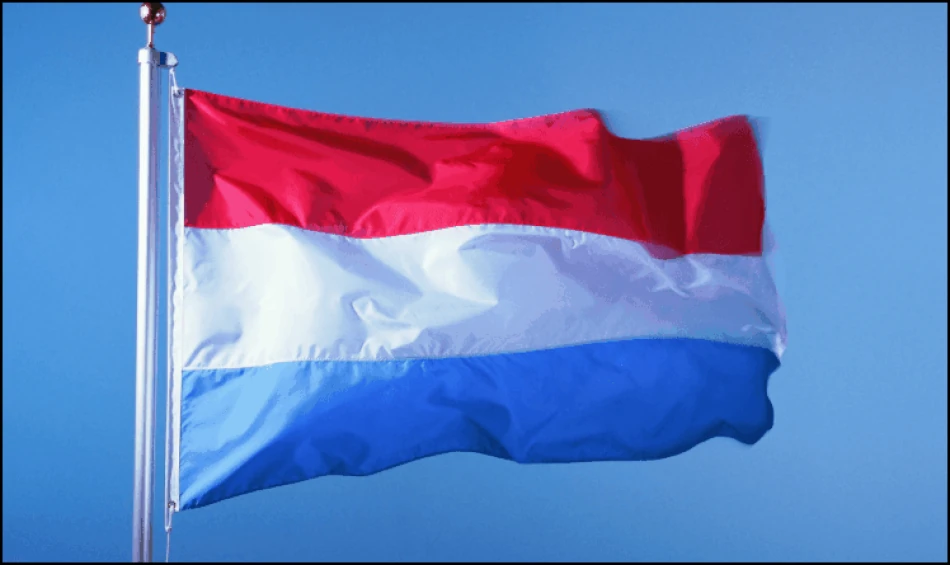
Luxembourg Decides to Recognize the State of Palestine
Luxembourg Set to Recognize Palestinian Statehood in Coordinated European Push
Luxembourg's government has announced its intention to formally recognize Palestinian statehood during the upcoming UN General Assembly sessions in New York this September, marking a significant shift in European diplomatic positioning. The move, coordinated with France and Belgium, represents growing European frustration with Israel's military campaign in Gaza and signals a potential watershed moment for Palestinian diplomatic recognition.
A Strategic Diplomatic Gambit
Prime Minister Luc Frieden and Foreign Minister Xavier Bettel revealed the decision before a parliamentary committee, ending months of governmental hesitation. The timing is deliberate—coinciding with the UN General Assembly's late September meetings when maximum international attention will focus on Middle East policy.
This coordinated approach with France and Belgium suggests a broader European strategy rather than isolated national decisions. Such multilateral recognition carries significantly more diplomatic weight than individual country announcements, potentially creating momentum for wider European Union action.
European Momentum Building
The announcement follows a hardening European stance toward Israel's Gaza operations, which have resulted in over 60,000 Palestinian deaths according to local health officials since Hamas's October 7, 2023 attack. European Commission Vice President Teresa Ribera's characterization of Gaza events as "genocide" reflects increasingly critical European perspectives.
European Commission President Ursula von der Leyen's announcement last week of stricter EU measures—including frozen payments and sanctions on extremist ministers and violent settlers—demonstrates this policy evolution. These moves represent a dramatic departure from Europe's traditionally cautious approach to Israeli-Palestinian issues.
Strategic Timing and UN Dynamics
The recognition timing aligns with last Friday's UN General Assembly vote supporting a declaration for "concrete, time-bound, and irreversible steps" toward a two-state solution before September 22nd meetings. This creates a diplomatic framework where Palestinian recognition becomes part of broader international momentum rather than isolated European action.
Historical Context and Precedent
European recognition of Palestinian statehood has proceeded incrementally. Sweden led European recognition in 2014, followed by several Eastern European nations. However, major Western European powers like France, Germany, and the UK have historically resisted recognition, viewing it as premature without negotiated agreements.
Luxembourg's decision, particularly in coordination with France, could signal a fundamental shift in this approach. France's involvement is especially significant given its traditional role in Middle East diplomacy and influence within EU foreign policy coordination.
Implications for Regional Dynamics
This European movement occurs amid broader Middle East realignment. The Abraham Accords demonstrated that Arab-Israeli normalization could proceed without Palestinian resolution, but October 7th and subsequent events have revived Palestinian centrality to regional stability discussions.
For Israel, coordinated European recognition represents a diplomatic setback, potentially complicating relationships with key trade and security partners. Israeli policymakers have long argued that premature recognition undermines negotiation incentives, but European patience with this position appears exhausted.
Market and Economic Considerations
Luxembourg's position as a major financial center adds economic dimensions to this diplomatic move. The country's recognition could influence European investment flows and business relationships in the region, particularly as ESG considerations increasingly factor into institutional investment decisions.
European sanctions and payment freezes already announced signal willingness to use economic tools for political objectives, suggesting recognition could be accompanied by concrete policy changes affecting trade and investment patterns.
Looking Ahead
The September UN General Assembly sessions will test whether this European initiative can generate broader international momentum. Success will depend partly on coordination with Global South nations already supporting Palestinian recognition and potential US positioning under current diplomatic pressures.
For Palestinian leadership, coordinated European recognition offers crucial diplomatic validation during a period of unprecedented humanitarian crisis. However, translating symbolic recognition into concrete statehood progress remains the ultimate challenge, requiring sustained international engagement beyond September's diplomatic theater.
Most Viewed News

 Sara Khaled
Sara Khaled






